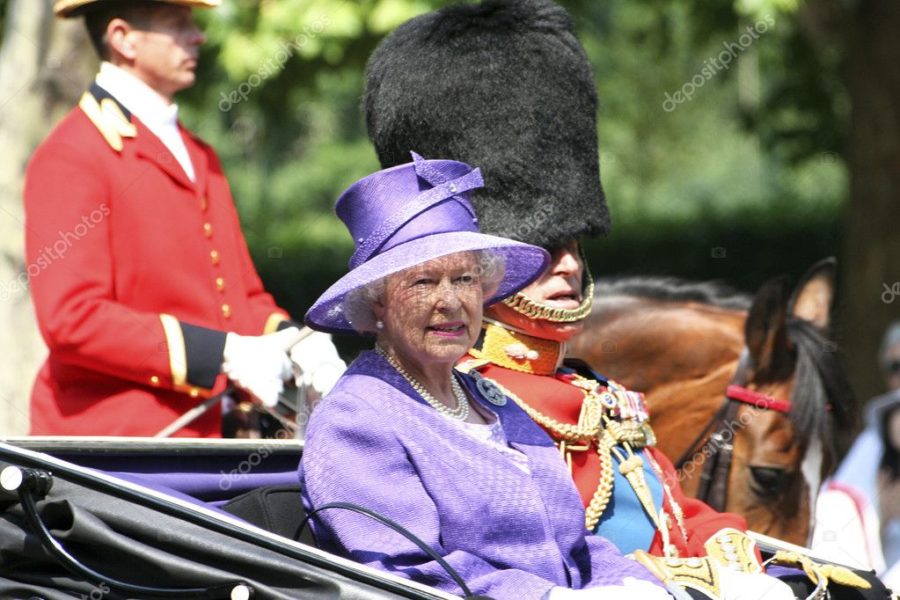From Beyond the Grave
On the 8th of September, the world was shaken by the loss of Queen Elizabeth II. At 96 years old, the monarch peacefully passed at Balmoral Castle (Scotland), her summer retreat. She was the second longest reigning monarch in the world, having recently celebrated her Platinum Jubilee marking 70 years on the throne. Since the death of her father, King George VI (1895-1952), she has been the face of Britain through the writing of history: the Cold War, the Space Race, and the pandemic, amongst other events. Despite facing public scrutiny, she always maintained a politically impartial stance, characteristic of the head of a state, even during scandals surrounding the royal family. In fact, with her death, criticism has arisen regarding her passive role in British colonial atrocities, echoes of her previous unpopularity, and her response to Princess Diana’s death.
Queen Elizabeth II and the royal family have always been the target of scrutiny from the media, especially concerning Princess Diana and her death. Popular works such as The Crown, The Queen, Spencer, Lady Di, etc. bring light to this scrutiny. At first, Diana’s marriage to Prince Charles, now King Charles III, was seen as a fairy tale. However, in 1990, Diana delivered audio tape confessions to journalist Andrew Morton, revealing her anything-but-magical reality. The tapes, later published as a book in 1992, DIANA: Her True Story – In Her Own Words, shatter the fairy tale by showcasing Charles’ infatuation with his ex-girlfriend Camilla Parker Bowles, now queen consort.
In fact, it became clear to Diana that “there were three of us in the marriage, so it was a bit crowded”: Charles even told Camilla, “whatever happens I will always love you”. Later on, this failing marriage triggered Diana’s eating disorder. According to the tapes, on one occasion, Charles put his hand on Diana’s waist and said, “Oh, a bit chubby here aren’t we?”. Reasonably, the royals received backlash once the tapes were published, a moment of low popularity coined by the “annus horribilis”, but it was after Diana’s tragic death in 1997 that the Queen reached her lowest point in the public eye. She was seen as cold and emotionally estranged from her British subjects, as she didn’t immediately join the crowds who gathered in London to mourn the loss of the “people’s princess”, choosing, instead, to remain at Balmoral. It was only later on, after extreme pressure from the people and advisers that the monarch finally agreed to return to London and make a public statement on Diana’s, her ex-daughter-in-law, death. The monarch argued the reason for her absence was to focus on her grandsons’ well-being after their mother’s death. However, despite her admirable intentions, as head of the nation, she needed to be present for her people, who were mourning the loss of their princess.
Now, even in death, unpopularity regarding her image is rising again as activists and American academics have taken to social media their criticism of the British monarchy’s influence in the exploitation of their previous colonies. For instance, Harvard history professor Maya Jasanoff criticized the Queen’s role in the suppression of Kenyan independence movements, as it was under her rule that British officials established detention camps of tens of thousands of people to suppress a rebellion against the colonial regime. Jasanoff affirms that those camps were centers of killing, torture, rape, and castration. Many others followed through with other examples. As stated by Cambridge University professor Priyamvada Gopal, the British monarchy “has come to represent deep, profound, and grave inequality”.
In fact, according to High School English teacher Mr. Clark (who is from England), such criticism has been in effect, for Prince William’s tour of the commonwealth nations in the Caribbean, earlier this year, was “disastrous” in the face of “calls for reparations by nations affected by the slave trade and colonialism”. These reparations are in good reason, for, in accord to British (yet raised in Australia) Biology and Chemistry teacher Mr. Boyd, colonization’s “cultural wounds” still run deep for those unfavored by the historical process, especially its role in their “subsequent low quality of life”.
The British Empire was a brutal colonizer, denying freedoms and destroying its culture in the process, all under the watchful eyes of its monarch. Yet, when Elizabeth inherited the throne, she merely stood as a figurehead, in service to the British parliament and constitution. Moreover, the British Empire was far from its former glory, and to affirm the monarchy as a constant in an ever-changing world, her role was restricted to a “courtly and reserved manner”. Because of this, she was dependent on the minister’s advice, often refraining from placing her opinion to not have her role as representative of the people compromised.
Under King Charles’ rule, this neutrality will be put to the test, especially in the face of the many scandals, such as Prince Andrew’s alleged crimes and relationship to criminal Jeffrey Epstein (an American sex offender), surrounding the royal family today. For, unlike his mother, Charles has demonstrated partiality amid his royal privilege over parliamentary decisions, not contributing to the “significant shadow” surrounding his figure, as reported by Mr. Clark. And in his opinion, in the present moment, the royal family will require more popular support to “reconcile Britain’s past with its future”.
Nevertheless, despite it all, she was a monarch in an ever-changing world, a remembrance of the past fighting for a place in the future, maintaining her popularity as she persisted through scandals. After all, most today cannot remember a time when she wasn’t queen, causing her to have been considered an immortal presence. Whether her role in history stands to be for the better, is unclear, but it is certain that the death of a figure, such as hers, does not and will not go unnoticed. Especially in Graded, the Queen’s figure retains significant relevance to the various nationalities in the community and their histories. Even after death, Queen Elizabeth II still haunts us all.
Works cited:
https://www.nytimes.com/2022/09/08/world/europe/queen-elizabeth-dead.html
https://www.nytimes.com/2022/09/08/opinion/queen-elizabeth-dead.html
https://www.rd.com/article/prince-charles-princess-diana-story/
https://www.theguardian.com/uk-news/2022/sep/09/queen-elizabeth-constitutional-role
https://www.theguardian.com/us-news/2022/sep/10/queen-death-colonies-atrocities-british-empire
https://edition.cnn.com/2020/08/31/world/princess-diana-death-the-windsors-series/index.html
https://www.nytimes.com/2022/09/09/podcasts/the-daily/queen-elizabeth-monarchy.html

Rebecca (with two ‘c’s please!), a senior, is delighted to be part of The Talon team this year as the news editor! The avid ballerina, whose life is...









